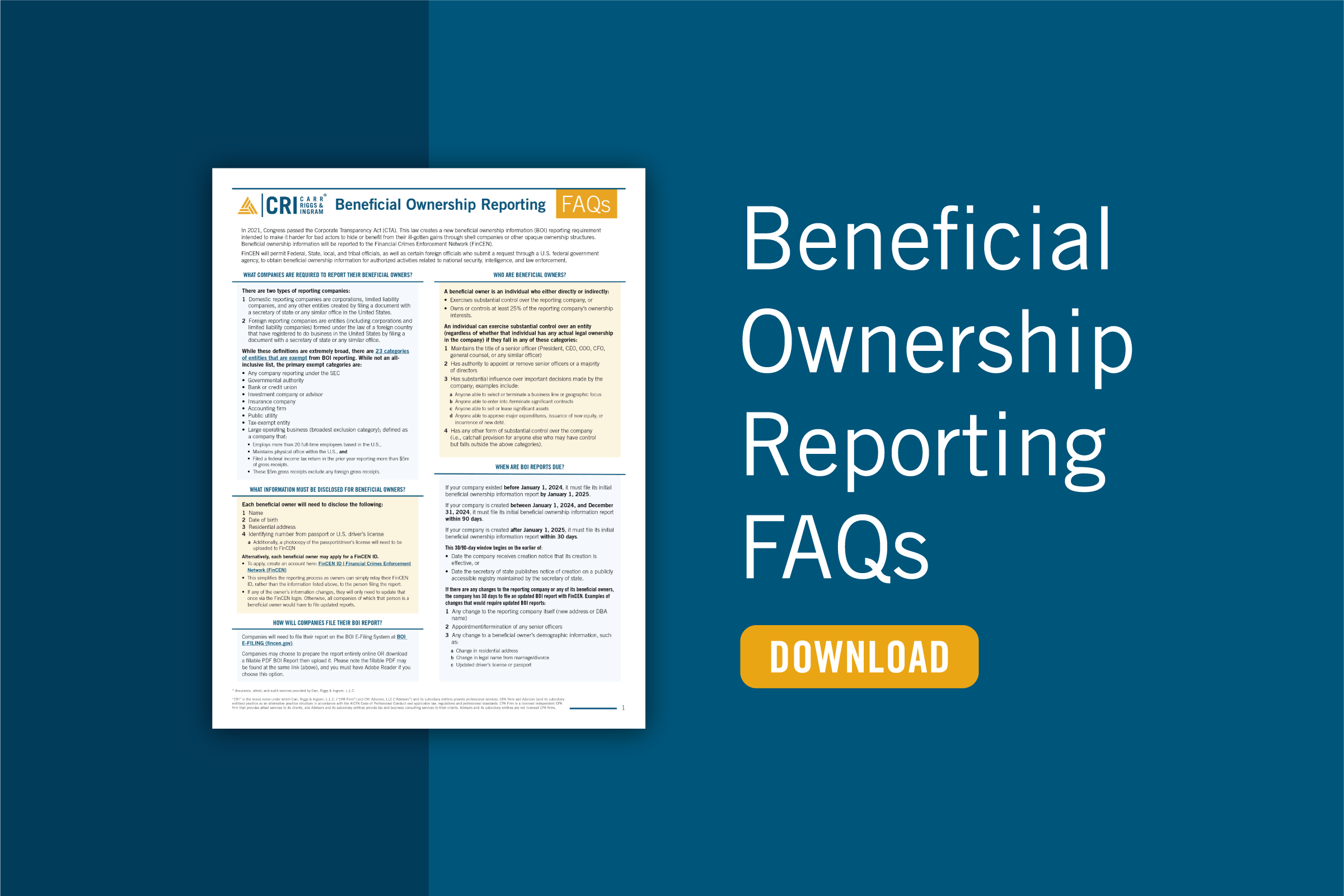Does Your Home Office Qualify for a Tax Deduction?
- Contributor
- Eric Leib
Jan 12, 2021
With so many business owners working from home this year, it’s important to remember how the home office deduction might apply to designated workspaces within your residence.
Who Qualifies
The Tax Cuts and Jobs Act suspended the “business use of home” deduction from 2018 through 2025 for employees, meaning that if your sole source of income is a paycheck received exclusively from an employer, you are not eligible for the deduction—even if you are currently working from home.
On the other hand, the home office deduction is available to qualifying self-employed taxpayers, independent contractors, and those working in the gig economy.
Qualifying for a Deduction
There are two basic requirements to qualify for the deduction. You need to use a portion of your home exclusively for conducting business on a regular basis, and the home must be your principal place of business.
If your home office does not qualify as your “principal place of business,” you may still be eligible for the deduction if you meet one of the following tests. You may qualify if the space is used:
- Exclusively and regularly to meet patients, clients, or customers in the normal course of your trade or business.
- Exclusively and regularly in connection with a trade or business, if it’s a separate structure that’s not attached to your home.
- On a regular basis for storing inventory or product samples used in your trade, or selling products at retail or wholesale.
- As a rental.
- As a daycare facility.
The term “home,” for purposes of this deduction, includes any of the following:
- A house, apartment, condominium, mobile home, boat, or similar property.
- Structures on the property, like an unattached garage, studio, barn, or greenhouse.
Any part of your property used exclusively as a hotel, motel, inn, or similar business, does not qualify.
Qualified Expenses
Deductible expenses for business use of your home typically include the business portion of real estate taxes, mortgage interest, rent, casualty losses, utilities, insurance, depreciation, maintenance, and repairs. In general, you may not deduct expenses for the parts of your home not used for business, such as expenses for lawn care or painting a room not used for business.
Once you qualify for the deduction, you can determine your home office deduction using either the regular method (the percentage of the home used for business applied to the qualified expenses) or the simplified method ($5 per square foot of the portion used for business up to a maximum of 300 square feet).
Daycare Facilities
If you use your home regularly to provide daycare, you may be able to claim a deduction for part of the home, even if the same space is used for non-business purposes. To qualify, both of the following requirements must be met:
- The business must provide daycare for children, people aged 65 or older, or people who are physically or mentally unable to care for themselves.
- The business must have applied for, been granted, or be exempt from having a license, certification, registration, or approval as a daycare center or as a family or group daycare home under state law.
To find out more about how business use of your home might qualify for the home office deduction, please contact your CRI advisor.









































































































































































































































































































































































































































































